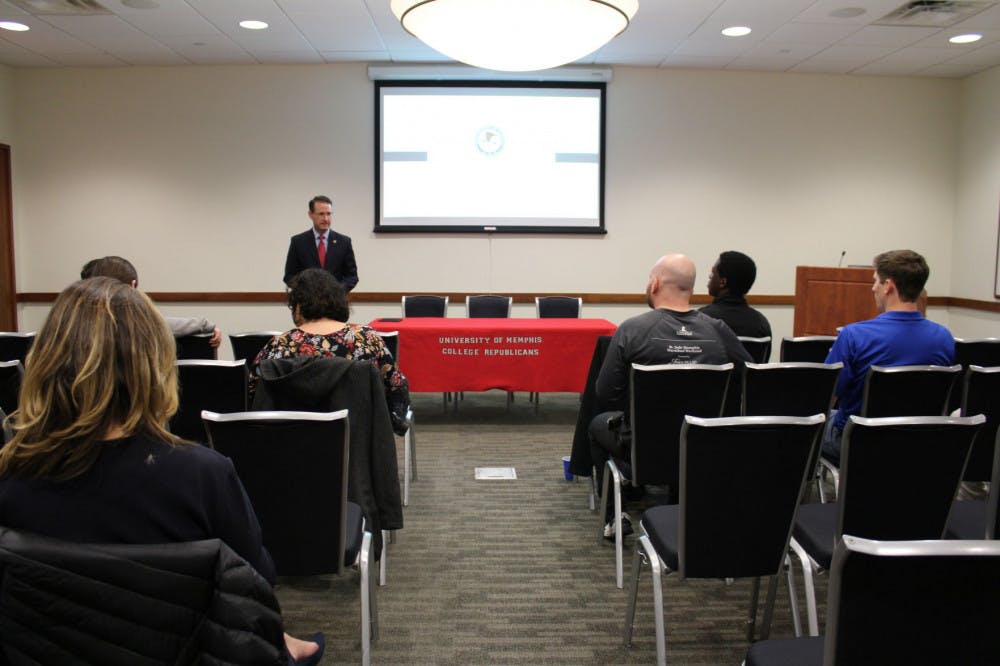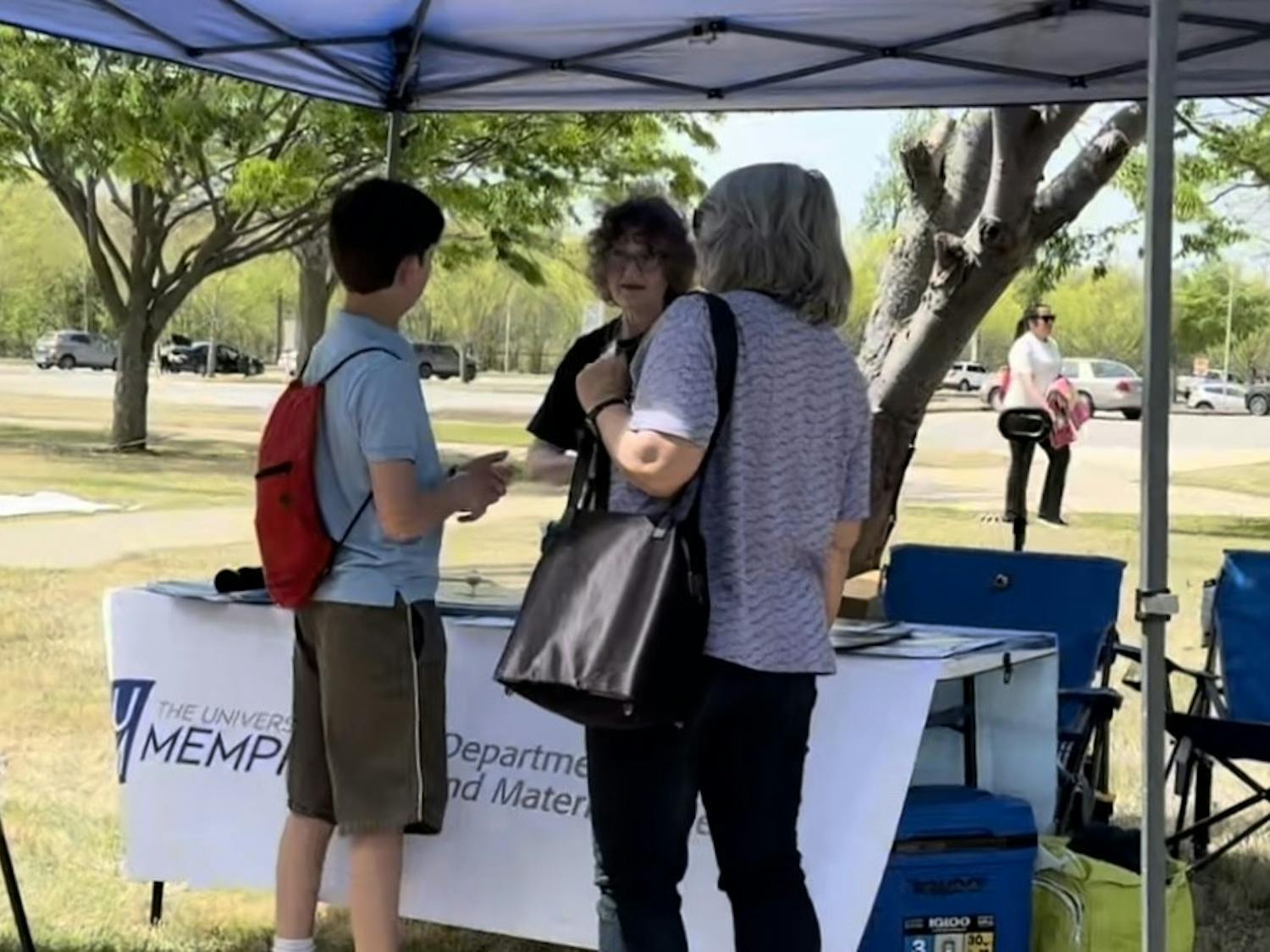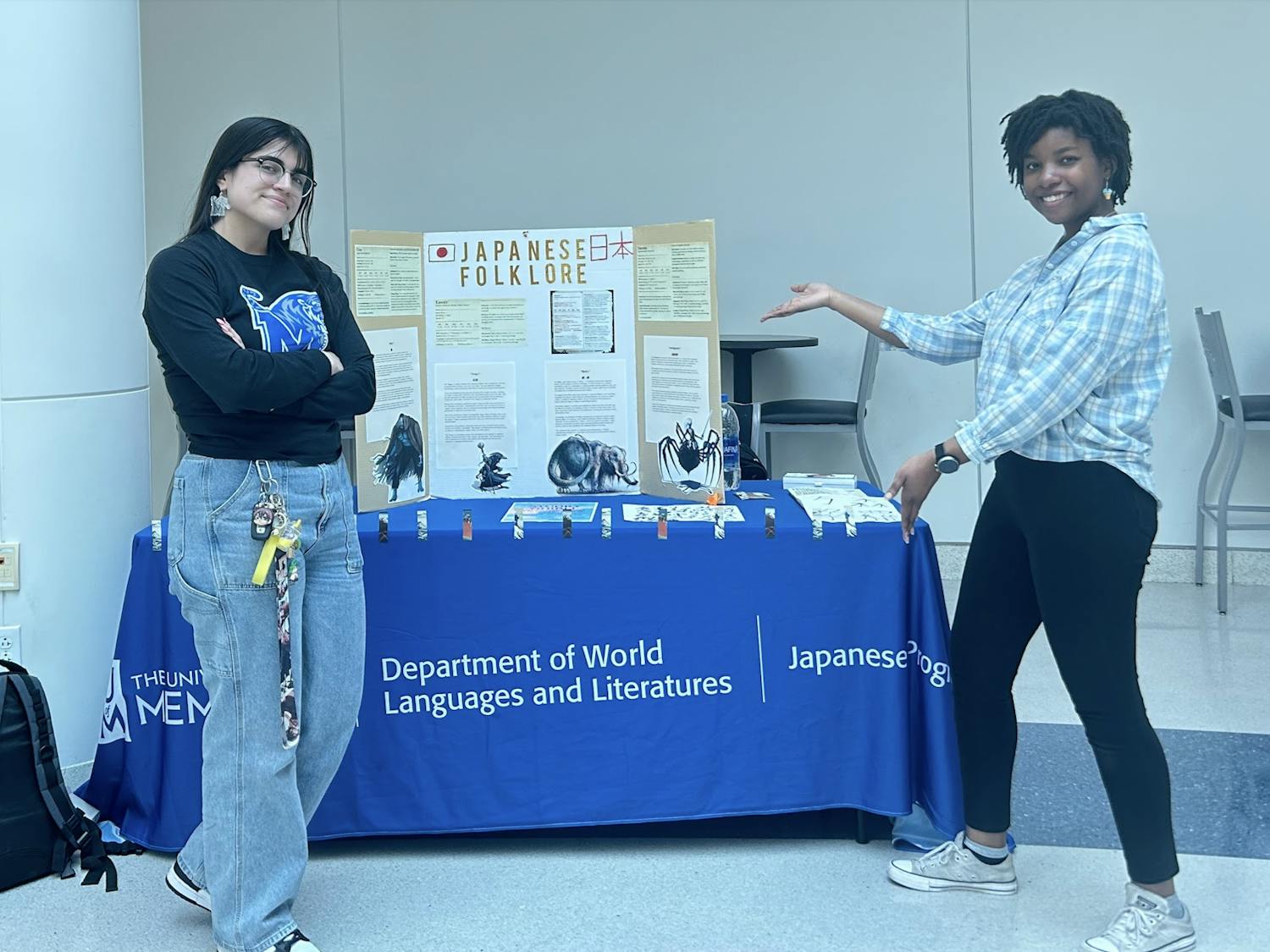The University of Memphis College Republicans meeting on foreign policy turned into a discussion of firearms and opioids with the United States Attorney of the Western District of Tennessee in the University Center Poplar Room on March 20.
Rather than touching on the president’s foreign policy as originally planned for the meeting, D. Michael Dunavant, a Donald Trump-nominated attorney, spoke on an array of local concerns. Reducing crime rate was the overarching theme of the conversation, as the attorney highlighted different problems in the community and his department’s role in handling them.
“Crime tends to radiate out from Memphis,” Dunavant said. “There is room for improvement, and I am confident we can reduce the amount of violent crime.”
Dunavant said his job and the job of the Department of Justice is to reduce violent crime, not manage or punish it. Violent crimes involving firearms were among the attorney’s chief concerns, and he said the department is taking on the situation “aggressively.”
Dunavant spoke heavily on the method of keeping neighborhoods safe by throwing offenders and unlawful firearm users in prison for the maximum amount of time. His statements were accompanied and supported by the “Gun Crime. Max Time” slogan of the national “Fed Up” gun control campaign announced in Memphis in July 2017.
The attorney said gun prosecutions in the district increased by 58 percent since he took office in September 2017, and violent crime rate decreased by 44 percent this year.
Dunavant said he and his department are “targeting the worst of the worst and deciding which venue, federal or state, will put them in the penitentiary the longest.” He said this method not only helps get criminals off the streets, but it also lets other “bad guys” know that breaking the law has consequences.
“The guy I send to the penitentiary today is not the guy shooting up your house tomorrow,” Dunavant said. “You lock more people up, you’re safer. It’s not rocket science.”
While emphasizing measures to reduce firearm crime, Dunavant also shared his view on how to stop gun violence as a whole. The attorney said taking guns away from the public violated the Second Amendment, and the solution lies more in dealing with the actual person and not the weapon.
“I’m not interested in the law-abiding citizen that wants to safely and lawfully own a gun,” Dunavant said. “I’m interested in the criminal. I’m not interested in the weapon, but the person pulling the trigger.”
The attorney also mentioned the opioid epidemic’s effect on West Tennessee communities. Dunavant said the best way to tackle the problem, at least in these communities, is to target the money of opioid dealers, crippling the supplier where it “hurts them the most.” He also responded to the controversial proposal by Trump to punish opioid dealers with the death penalty and said he is “all for it.”
“It is literally selling poison to our children,” Dunavant said. “This is the epidemic that’s killing us.”
K. B. Turner, the chair of the U of M criminal justice department, said he would support this concept as long as it was accompanied by efforts to treat criminals and prevent future crime.
“I would be supportive of meaningful long-term incarceration,” Turner said. “Long-term incarceration coupled with an emphasis on prevention and treatment is what I would advocate.”
Turner did not agree with the “state-sponsored death of citizens,” regardless of their involvement in the opioid crisis and its effects on others.
“Prevention and treatment of those sadly affected by opioids are likely to be a more effective social and humane response to the opioid crisis confronting this country,” Turner said. “Certainly, all actors in the ‘supply chain’ of opioids must be held accountable for their roles in this crisis.”
D. Michael Dunavant, United States Attorney for the Western district of Tennessee, spoke at a College Republicans event on many topics, including immigration and gun control. President Trump appointed Dunavant to his position.






